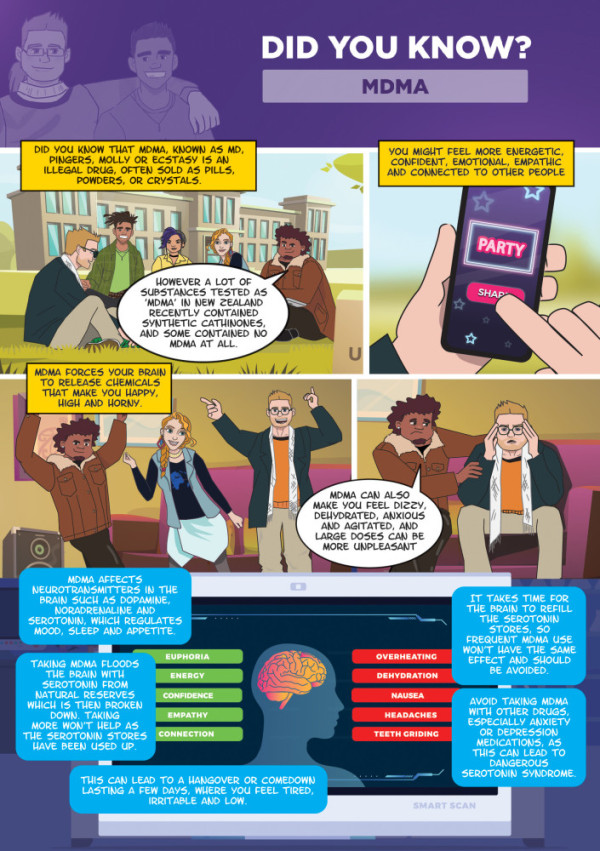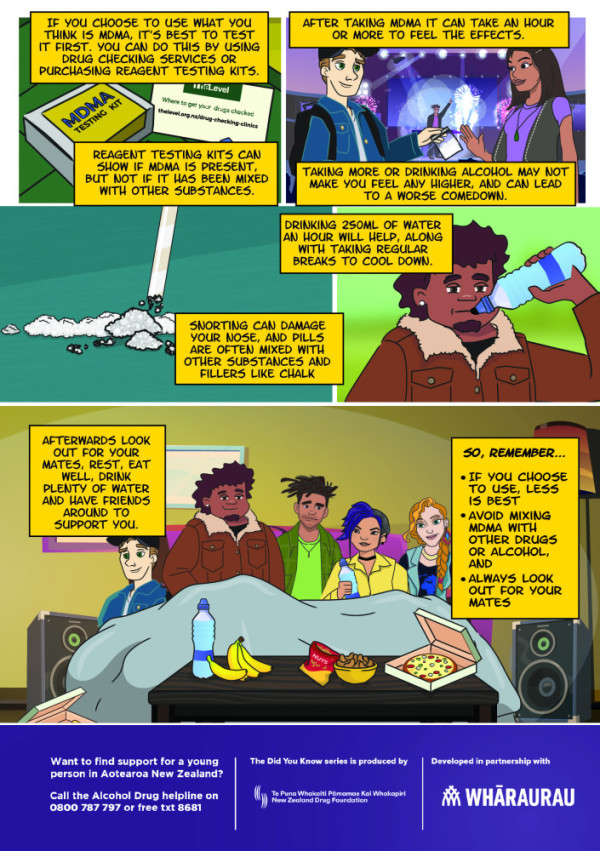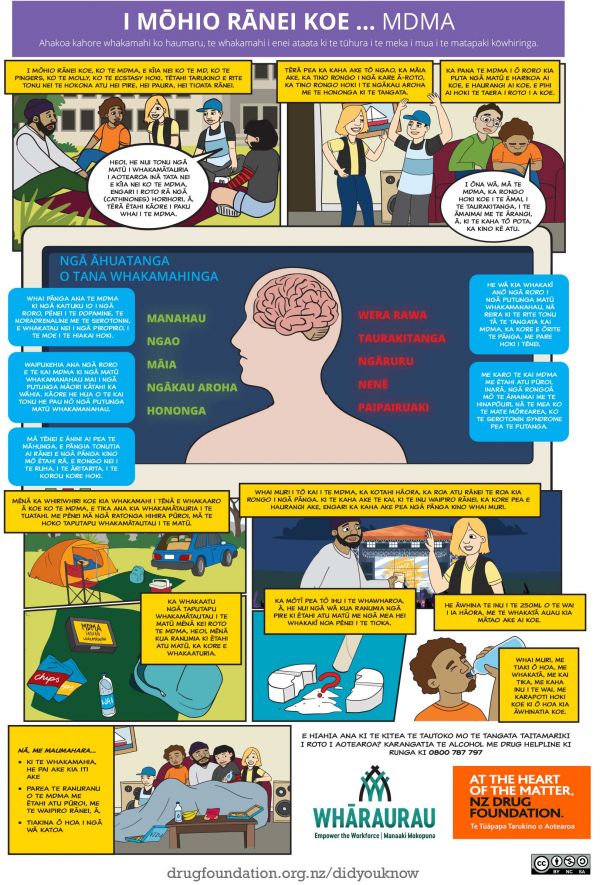This short video is for New Zealand parents, caregivers, whānau and those working with young people to understand basic facts about MDMA. Don't stop here, start a conversation.
Did You Know that MDMA, known as MD, Pingers, Molly or Ecstasy is an illegal drug, often sold as pills, powders, or crystals. However a lot of substances tested as ‘MDMA’ in New Zealand recently contained synthetic cathinones, and some contained no MDMA at all.
MDMA forces your brain to release chemicals that make you happy, high and horny. You might feel more energetic, confident, emotional, empathic and connected to other people. MDMA can also make you feel dizzy, dehydrated, anxious and agitated, and large doses can be more unpleasant.
MDMA affects neurotransmitters in the brain such as dopamine, noradrenaline and serotonin, which regulates mood, sleep and appetite. Taking MDMA floods the brain with serotonin from natural reserves which is then broken down. Taking more won’t help as the serotonin stores have been used up. This can lead to a hangover or comedown lasting a few days, where you feel tired, irritable and low.
It takes time for the brain to refill the serotonin stores, so frequent MDMA use won’t have the same effect and should be avoided.
If you choose to use what you think is MDMA, it’s best to test it first. You can do this by using drug checking services or purchasing reagent testing kits. Reagent testing kits can show if MDMA is present, but not if it has been mixed with other substances.
After taking MDMA it can take an hour or more to feel the effects. Taking more or drinking alcohol may not make you feel any higher, and can lead to a worse comedown. Snorting can damage your nose, and pills are often mixed with other substances and fillers like chalk. Avoid taking MDMA with other drugs, especially anxiety or depression medications, as this can lead to dangerous Serotonin Syndrome.
Drinking 250ml of water an hour will help, along with taking regular breaks to cool down. Afterwards look out for your mates, rest, eat well, drink plenty of water and have friends around to support you.
So, remember…
- If you choose to use, less is best
- Avoid mixing MDMA with other drugs or alcohol, and
- Always look out for your mates
Did you know...
that MDMA affects neurotransmitters in the brain such as dopamine, noradrenaline and serotonin, which regulates mood, sleep and appetite.
A lot of substances tested as ‘MDMA’ in New Zealand recently contained synthetic cathinones, and some contained no MDMA at all. So if you choose to use what you think is MDMA, it’s best to test it first at a drug checking service or using a reagent testing kit.
MDMA is not without its risks - it can make you confused, raise your body temperature to dangerously high levels, and cause depression and sleep problems. But raising it in a conversation can help your young person know that it is ok to talk to you about it.
Resources
Request printed posters in any language on our Resources website.
This includes the complete Did You Know Conversation Guide which you can also view and download right now: A guide to conversations with young people about drugs and alcohol (PDF, 2.7 MB).
About Did You Know
These tools and resources were initiated by the Counties Manukau AOD Provider Collaborative and the New Zealand Drug Foundation with support from Odyssey. Expert advice and participation from young people were used in their development. Creative by Mohawk Media.

Did You Know is licensed under a Creative Commons Attribution-NonCommercial 4.0 International License.




